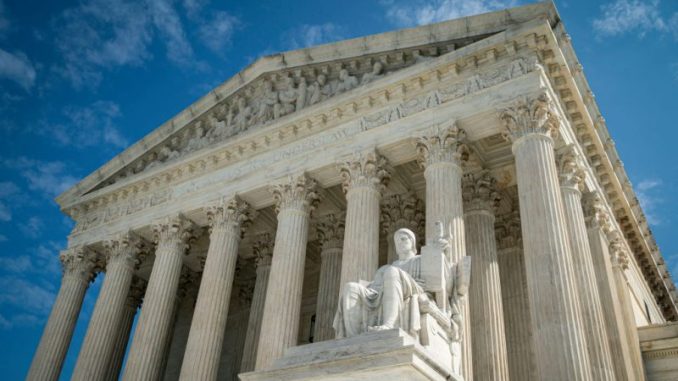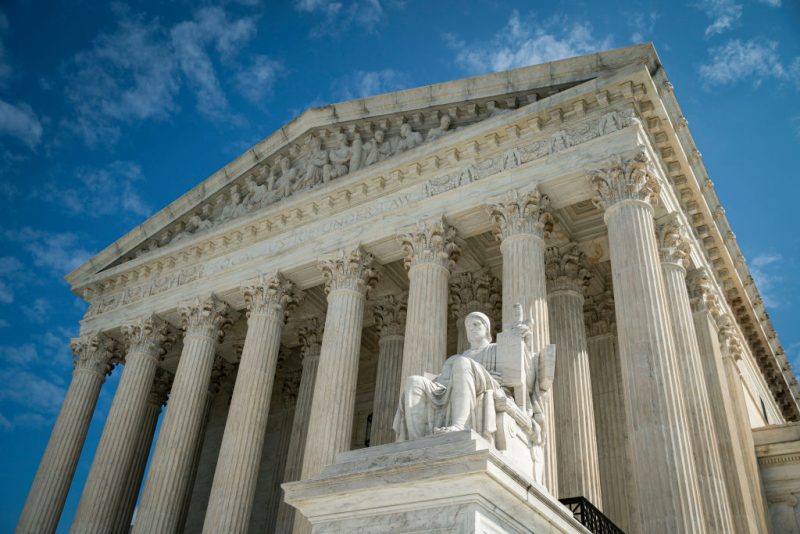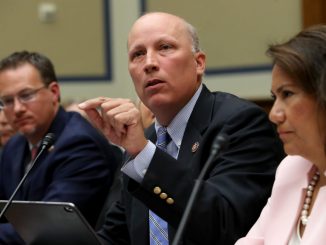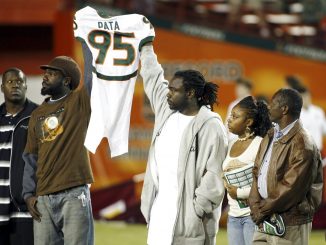

OAN’s Abril Elfi
12:07 PM – Wednesday, June 26, 2024
The Supreme Court has rejected a lawsuit against the Biden Administration that accused them of illegally conspiring with Big Tech companies to censor social media posts regarding the COVID-19 pandemic, mRNA vaccines, and Hunter Biden’s laptop.
Advertisement
The case had stemmed from a lawsuit brought by state attorneys general from Missouri and Louisiana that accused high-ranking government officials of working alongside tech companies “under the guise of combating misinformation” that led to censoring speech on social media.
The censored topics included Hunter Biden’s laptop, which was initially falsely claimed to be Russian disinformation by over 50 “experts,” COVID-19’s origins, and the efficacy, or lack thereof, of face masks in combating the virus.
Writing for the majority, Republican Justice Amy Coney Barrett argued that the plaintiffs lacked standing to file their challenge. Additionally, in 2021, “Barrett turned down a request from a group of Indiana University students to block the school’s requirement that students be vaccinated against the virus,” ABC News reported.
As time passes, political commentators have argued that Barrett seems to be turning more left-wing, especially ever since she previously backed Joe Biden in a vote pertaining to border security.
“The plaintiffs, without any concrete link between their injuries and the defendants’ conduct, ask us to conduct a review of the years-long communications between dozens of federal officials, across different agencies, with different social-media platforms, about different topics,” she said. “This Court’s standing doctrine prevents us from “exercis[ing such] general legal oversight” of the other branches of Government. We therefore reverse the judgment of the Fifth Circuit and remand the case for further proceedings consistent with this opinion.”
The vote was 6-3, with Justice Samuel Alito, Justice Clarence Thomas and Neil Gorsuch voting to approve the case.
“The plaintiffs claim standing based on the ‘direct censorship’ of their own speech as well as their ‘right to listen’ to others who faced social-media censorship,” Barrett wrote. “Notably, both theories depend on the platform’s actions—yet the plaintiffs do not seek to enjoin the platforms from restricting any posts or accounts. They seek to enjoin Government agencies and officials from pressuring or encouraging the platforms to suppress protected speech in the future,” she wrote, adding that the states’ “alleged injuries” were of a “one-step-removed, anticipatory nature.”
Last year, U.S. District Court Judge Terry A. Doughty issued the temporary injunction to stop White House and executive agency representatives from meeting with tech companies about content moderation, contending that past actions of this kind were “likely” violations of the First Amendment.
“If the allegations made by Plaintiffs are true, the present case arguably involves the most massive attack against free speech in United States’ history,” the injunction said. “In their attempts to suppress alleged disinformation, the Federal Government, and particularly the Defendants named here, are alleged to have blatantly ignored the First Amendment’s right to free speech.”
The induction had also stated that “the censorship alleged in this case almost exclusively targeted conservative speech,” but that issues the case raises are “beyond party lines.”
The Justice Department responded soon after, claiming that the temporary ban would cause “irreparable harm” since it may “prevent the federal government” from “working with social media companies on initiatives to prevent grave harm to the American people and our democratic processes.”
On Wednesday, Barrett wrote that the Supreme Court’s “standing doctrine prevents us from ‘exercis[ing such] general legal oversight’ of the other branches of Government. We therefore reverse the judgment of the Fifth Circuit and remand the case for further proceedings consistent with this opinion.”
However, Justice Alito said that “if the lower courts’ assessment of the voluminous record is correct, this is one of the most important free speech cases to reach this Court in years.”
“For months, high-ranking Government officials placed unrelenting pressure on Facebook to suppress Americans’ free speech. Because the Court unjustifiably refuses to address this serious threat to the First Amendment, I respectfully dissent,” he said.
Barrett then argued that “the plaintiffs rely on allegations of past Government censorship as evidence that future censorship is likely.”
“But they fail, by and large, to link their past social-media restrictions to the defendants’ communications with the platforms. Thus, the events of the past do little to help any of the plaintiffs establish standing to seek an injunction to prevent future harms,” she said.
“These past and threatened future injuries were caused by and traceable to censorship that the officials coerced, and the injunctive relief she sought was an available and suitable remedy,” Alito countered, adding that the evidence was “more than sufficient” to establish the plaintiff’s standing to sue.
“[A]nd consequently, we are obligated to tackle the free speech issue that the case presents,” he added.
“The Court, however, shirks that duty and thus permits the successful campaign of coercion in this case to stand as an attractive model for future officials who want to control what the people say, hear, and think. That is regrettable,” he said.
“What the officials did in this case was more subtle than the ham-handed censorship found to be unconstitutional in Vullo, but it was no less coercive,” Alito continued, citing a recent First Amendment case decided earlier this term. “And because of the perpetrators’ high positions, it was even more dangerous. It was blatantly unconstitutional, and the country may come to regret the Court’s failure to say so, “Officials who read today’s decision together with Vullo will get the message. If a coercive campaign is carried out with enough sophistication, it may get by. That is not a message this Court should send.”
Stay informed! Receive breaking news blasts directly to your inbox for free. Subscribe here. https://www.oann.com/alerts





Be the first to comment